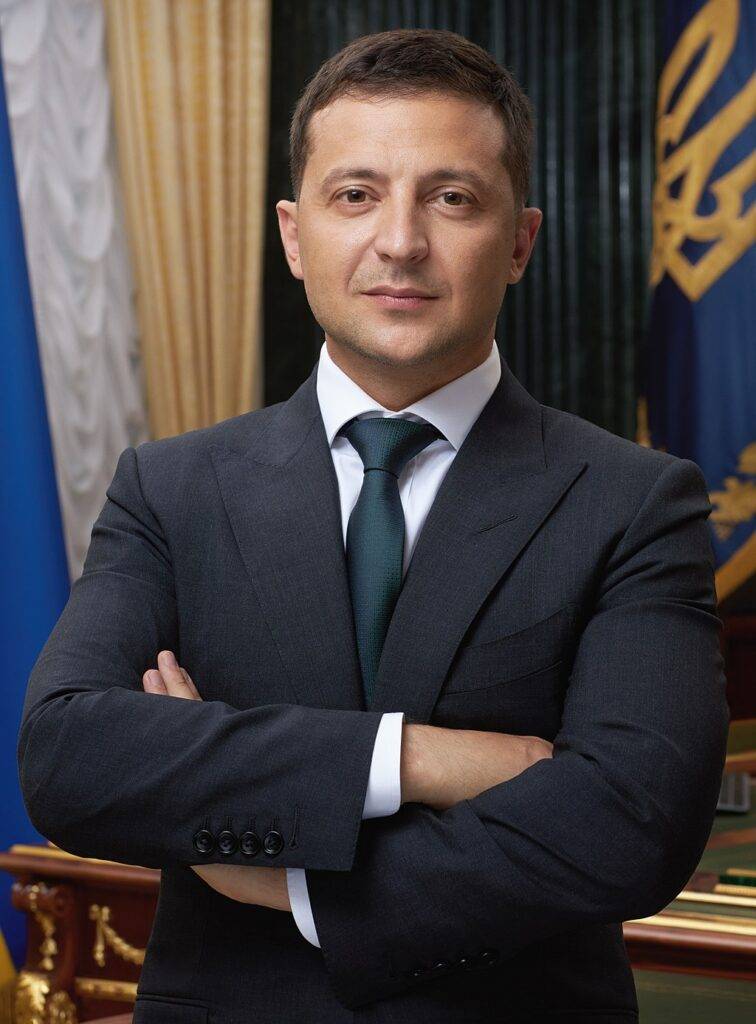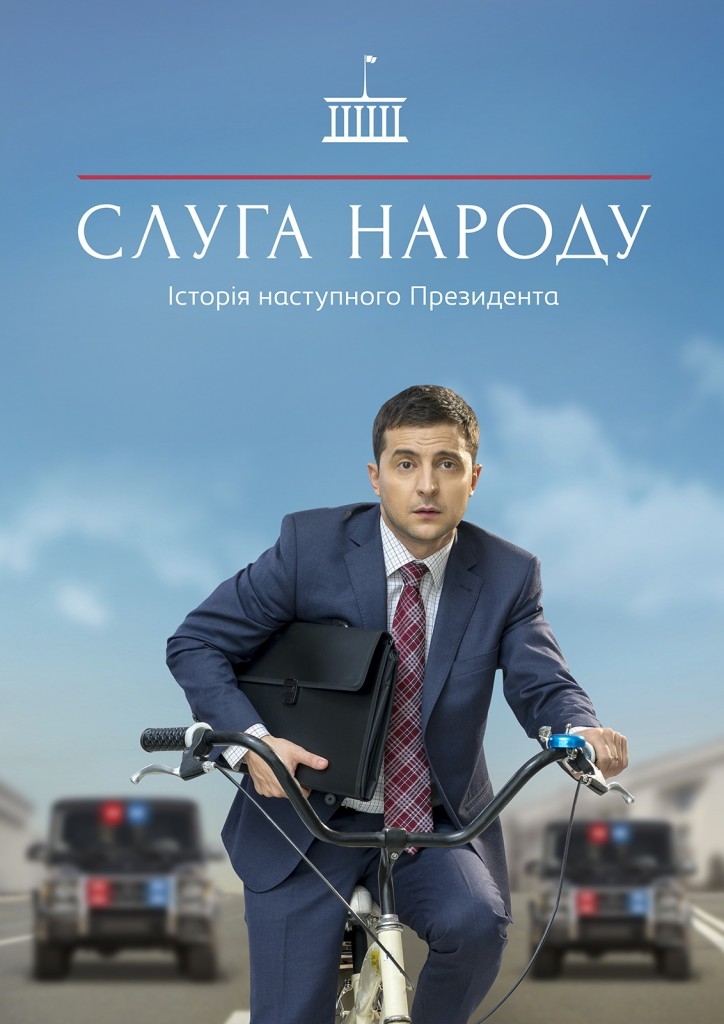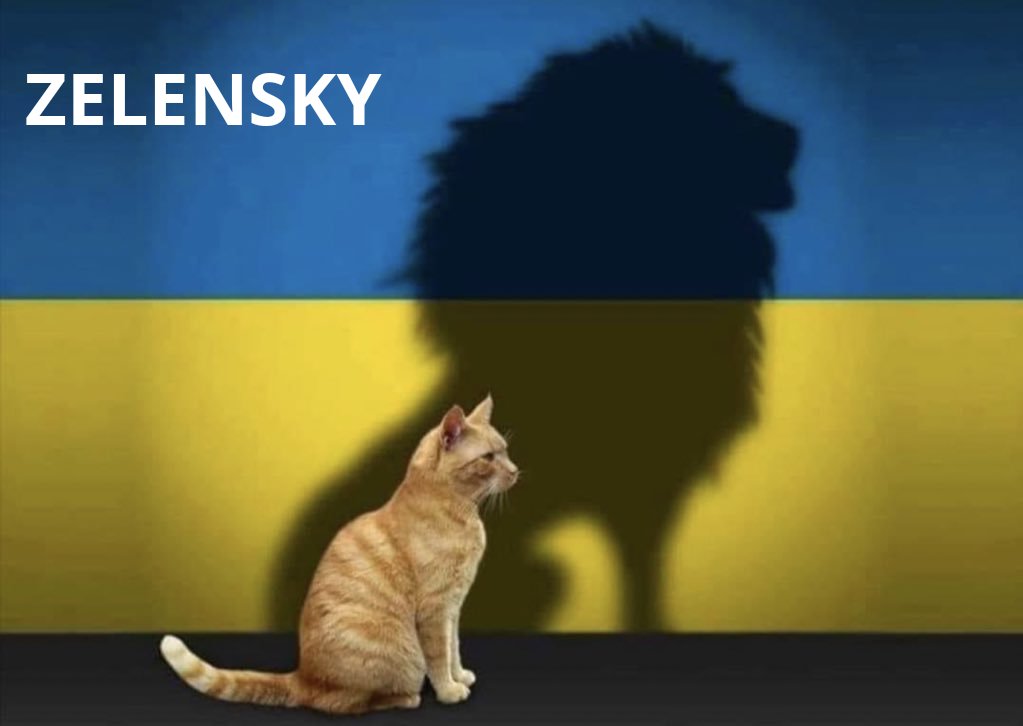As I write this post, the war in Ukraine continues. Ukrainian forces, under the courageous leadership of President Volodymyr Zelensky, are putting up incredible resistance to the Russian invasion.
The International community has imposed massive sanctions on Russia because of the brazen and unjustified assault ordered by Vladimir Putin. Weapons and other supplies are being shipped to Ukraine en masse.
But Russia continues to pour thousands of troops into the country. The world hopes and prays that Ukraine can resist.

A couple of days ago, I analyzed the 24 February 2022 speech of Vladimir Putin announcing the invasion of Ukraine. As repugnant as it might be to listen to a speech filled with half-truths and outright lies, it is important to understand the speaking style and techniques of tyrants so that we can recognize such speeches for what they truly are.
Today, I look at the 24 February 2022 speech of Volodymyr Zelensky. It was a brilliant speech that will find its place among the most powerful and inspiring political speeches in recent history.
Zelensky or Zelenskyy?
To begin, a quick note about the spelling of Zelensky’s last name. It has caused some confusion for westerners.
Ukrainian (like Russian) uses the Cyrillic alphabet. When translating from one language into another language that uses a different script – think Ukrainian or Russian or Arabic or Chinese into English – there is also the issue of transliteration, the purpose of which is not to represent the sounds of the original, but to represent the characters as accurately as possible.
In Ukrainian, the name Volodymyr Zelensky is written Володимир Зеленський. Note the “ий” at the end of his last name. Those letters represent, respectively, an “ee” sound and a short “i” sound. Hence the reason for the spelling “Zelenskyy”. I have decided to go with the more commonly used “Zelensky” for English speakers, but wanted to acknowledge the linguistic distinction for Ukrainian speakers.
A servant of the people
In many ways, Volodymyr Zelensky is the most unlikely of heroes. He grew up in a Russian-speaking part of southeast Ukraine. He got a law degree but pursued a career in standup comedy and acting. Incredibly, he then starred in a comedy series, Servant of the People (Слуга народу in Ukrainian) in which he played a high school teacher who suddenly becomes the President of Ukraine!

In 2019, Zelensky defeated incumbent Petro Poroshenko to become President of Ukraine. He stated that he entered politics “to bring professional, decent people to power” and that he “would really like to change the mood and timbre of the political establishment, as much as possible.” Zelensky promised that he would only stay in power for a single term of five years.
I do not think that Zelensky could have imagined what lay ahead of him when he assumed power in 2019. But he has more than met the moment. His courage and his determination have inspired the world. When the United States offered to evacuate him and his family, Zelensky replied, “The fight is here. I need ammunition, not a ride.” How can you not admire someone like that?
Martin Luther King said, “The ultimate measure of a man is not where he stands in moments of comfort and convenience, but where he stands at times of challenge and controversy.” The world sees just how tall Volodomyr Zelensky stands.
The speech of Volodymyr Zelensky
Volodymyr Zelensky’s speech is just over 11 minutes in length. The first two minutes are in Ukrainian and the final nine are in Russian. Unfortunately, I could only find the portion in Russian with English subtitles. That video is below. However, you can watch the entire speech, without subtitles, on Zelensky’s Facebook page. I watched it while cross-referencing the speech with a very helpful translation of the entire speech by Dominic Cruz Bustillos.
(a) In Ukrainian
- Zelensky begins, “Great people of a great country!” He then talks about the soldiers protecting Ukraine, the parliamentary deputies who are going to the regions to support the people, and all of the international support that Ukraine has thus far received. (Since the speech, far more help has been forthcoming.)
- Zelensky also speaks of a meeting in Kyiv with the Presidents of Poland and Lithuania and how they will support granting Ukraine the status of a candidate for membership in the European Union. EU membership would be a huge boost for Ukraine in many ways so this is a hopeful message for his people.
- He speaks of meeting with representatives of major Ukrainian businesses and how everyone is unified.
- He concludes this part of the speech by urging everyone to keep working.
(b) In Russian
The rest of Zelensky’s speech is in Russian and begins at the 2-minute mark. The video is below and I encourage you to watch it in its entirety. The analysis follows.
Two technical notes: (1) Where I quote Zelensky, I sometimes use the above-mentioned translation by Dominic Cruz Bustillos, which is not, word for word, the same as the subtitles on the YouTube video. (2) All time references are to the 9-minute video below, not the entire speech.
- The staging for the speech is excellent. Zelensky stands in a suit. He is not behind a lectern or a desk. Behind him are the flag of Ukraine, the flag of the President of Ukraine and the map of Ukraine which, importantly, includes Crimea.
- Notice how Zelensky stands: tall, with his arms at his sides. It is the most natural position in the world. Of course, it is good to gesture, but when not gesturing, let gravity do the work for you. Don’t keep your arms up like you are a waiter carrying a tray of drinks or, as my friend Florian Mueck says, like you are T-Rex. Just imagine that you are are carrying two suitcases.
- Zelensky speaks with conviction. The situation is dire and it shows on his face. His voice is gravelly – undoubtedly from many long days and sleepless nights – but he is firm and resolute for his people.
- He takes his time to emphasize key points and to pause to let his words sink in.
- His look at the camera is unwavering.
- Zelensky’s decision to speak in Russian was a brilliant move. He already has the Ukrainian people and the international community on his side. In this video, his audience is the Russian people and he speaks to them, “not as President” but “as a citizen of Ukraine” (0:18). He knows that many, if not most, of them do not support Putin. And even though Zelensky knows that his speech will not appear on Russian TV (8:15), it will appear on the Internet and social media.
- Throughout his speech, Zelensky uses a number of rhetorical devices and he uses them effectively.
-
- Hypophora: asking a question and immediately answering it
0:03 – “Today, I initiated a phone call with the president of the Russian Federation. The result? Silence.”
4:25 – “We are not alone. Many countries support Ukraine in this. Why? Because we are not talking about peace at any cost. We are talking about both peace and principles. About justice. About international law. About the right to self to self-determination, the right to determine your own future, every society’s right to security, and every person’s right to live without threats.
-
- Rhetorical question: a question asked for a dramatic effect or to make a point rather than to get an answer. The quotes below are particularly powerful because Zelensky shows the absurdity of Putin’s allegations by drawing on his personal experience. In the second quote, he asks no fewer than ten rhetorical questions in rapid succession.
1:39 – “You are told that we are Nazis. But how can a people who gave more than eight million lives for the victory over Nazism support Nazism? How could I be a Nazi? Tell that to my grandfather, who went through the entire war in the infantry of the Soviet Army and died as a colonel in independent Ukraine.” (NB – It is interesting that Zelensky does not mention that he is Jewish or that he lost family in the Holocaust. Undoubtedly, he and his advisors calculated that focusing on his grandfather fighting in the Soviet Army would be more effective for his intended audience. The lesson? It is always about the audience.)
2:40 – “You are told that I will order an attack on the Donbas, to shoot and bomb without questions. Although there are questions, and very simple ones. Shoot at whom? Bomb what? Donetsk, where I have been dozens of times? Where I have seen people’s eyes and faces? Artyom street, where I walked with friends? Donbas Arena, where I rooted with the locals for our Ukrainian guys at the Euro [the 2012 UEFA European Football Championship]? Sherbakova Park, where we drank together when our guys lost? Luhansk? The home where my best friend’s mother lives? The place where my best friend’s father is buried?
-
- Tricolon: a series of the three words or phrases
2:30 – “We want to define and build our history ourselves. Peacefully. Calmly. Honestly.”
5:05 – “We know for sure that we don’t want war. Not cold, not hot, not hybrid.”
-
- Symploce: repetition of a word or phrase at the beginning of successive sentences or clauses and repetition of another word or phrase at the end of those same sentences or clauses. In fact, the quote below is an absolutely brilliant combination of hypophora, tricolon and symploce.
7:18 – “Who will suffer the most from this? People. Who does not want this more than anyone? People. Who can prevent this? People.”
- Last year, I wrote about the three key words for every public speaker: I, You and We. Zelensky uses each of these words masterfully at different moments.
-
- I
1:39 and 2:40 – When speaking of his personal experiences as noted above.
-
- You
3:45 – When appealing to Russians and their experiences with Ukraine. “Many of you have been to Ukraine. Many of you have relatives in Ukraine. Some of you studied in Ukrainian universities, befriended Ukrainian people. You know our character. You know our people. You know our principles. You are aware of what we cherish. So please listen to yourselves. To the voice of reason. To common sense.”
7:35 – “Are these people present among you? I am sure there are. Public figures, journalists, musicians, actors, athletes, scientists, doctors, bloggers, stand-up comedians, Tik-Tokers and many more. Regular people. Regular, normal people. Men, women, the elderly, children, fathers, and most importantly, mothers. Just like people in Ukraine.”
-
- We
2:20 – When speaking of Ukraine and Russia together. “Neighbours always enrich one another culturally. However, this does not make them a single entity. It does not separate people into “us” and “them”. We are different. But this is not a reason to be enemies.
- Zelensky has memorable lines. For me the most memorable occurs at 5:10. He tells the Russians that Ukrainians will not run, they will fight. The emphasized part of the quote below is a great soundbite. Tweetable, Instagrammable, memorable. If you can have a phrase or two like that in your speeches, it will stick with your audience.
5:10 – “If we are attacked, if someone tries to take away our country, our freedom, our lives, the lives of our children—we will defend ourselves. Not attack. Defend. While attacking, you will see our faces. Not our backs. Our faces.”
- He ends his speech with a question for the Russian people. Ending a speech with a question for the audience can be powerful and provocative as we can see in Zelensky’s speech.
8:44 – “Do Russians want war? I would very much like to answer this question. But the answer depends only on you, the citizens of the Russian Federation.”
Again, I encourage you to watch the entire video. Share it so that others can be inspired. The Ukrainians have shown remarkable courage in the face of significant odds, but the situation is precarious and the challenge is incredibly daunting. However in Zelensky, Ukrainians have a true leader.
In his play Twelfth Night, William Shakespeare wrote, “Some are born great. Some achieve greatness. And some have greatness thrust upon them.”
Volodymyr Zelensky understands what those words mean.

















20 Replies to “Analysis of a Speech by Volodymyr Zelensky”
Awesome, timely, and poignant. Zelensky truly defines leadership by his actions and words. I hope the Russians take note.
Great analysis raising my curiosity of watching this video again and again.
Let’s learn from the best speakers, and from the best analyses. Thanks John!
Brilliant analysis. Relevant to everyone who loves rhetoric and public speaking. Well done, my friend!
Thank you John, deep clarity now on a speech that will continue to be analyzed 1000 years from now.
Really insightful article. It seems that there is another parallel between Zelensky and Churchill beyond their wartime leadership in their masterful use of language.
Importantly, Zelenskyy’s use of the phrase “Do Russians want war?” is a reference to a famous protest song of Yevtushenko: https://en.wikipedia.org/wiki/Do_the_Russians_Want_War%3F. Every Russian knows this song, which is a paean to the desire for peace between the USSR and the West during the Cold War
Thanks for that insight, Nick. It makes the line even more powerful!
Thank you, John.
Thanks, Kevin!
Thank you, Flo. He has had several others since then – mainly to western audiences from whom he is requesting help – and they all show that he is shrewd when it comes to speaking. You can tell that he really tailors his messages for his audiences.
Many thanks, Stephen. There is a lot to learn from Zelenksky.
Thanks, Bill. Sadly, it seems that the Russians have utterly disregarded it.
Thank you very much for your excellent and educative analysis.
President Zelensky(y)’s charisma, supported by knowing, understanding, using “the rules” of successful embracement (referring to his ability to show just the right amount of genuine emotions) of the audience – unforgettable. (Sorry, English is not my first language).
Thank you for the comment, Melita. And do not worry about your English; it is excellent.
Excellent analysis. This is essential reading for every rhetorician or public speaker. Congratulations, my buddy!
Much appreciated.
Thanks for this useful information.
Thank you.
Zelensky is the man who is multitalented.
Indeed he is.
Comments are closed.